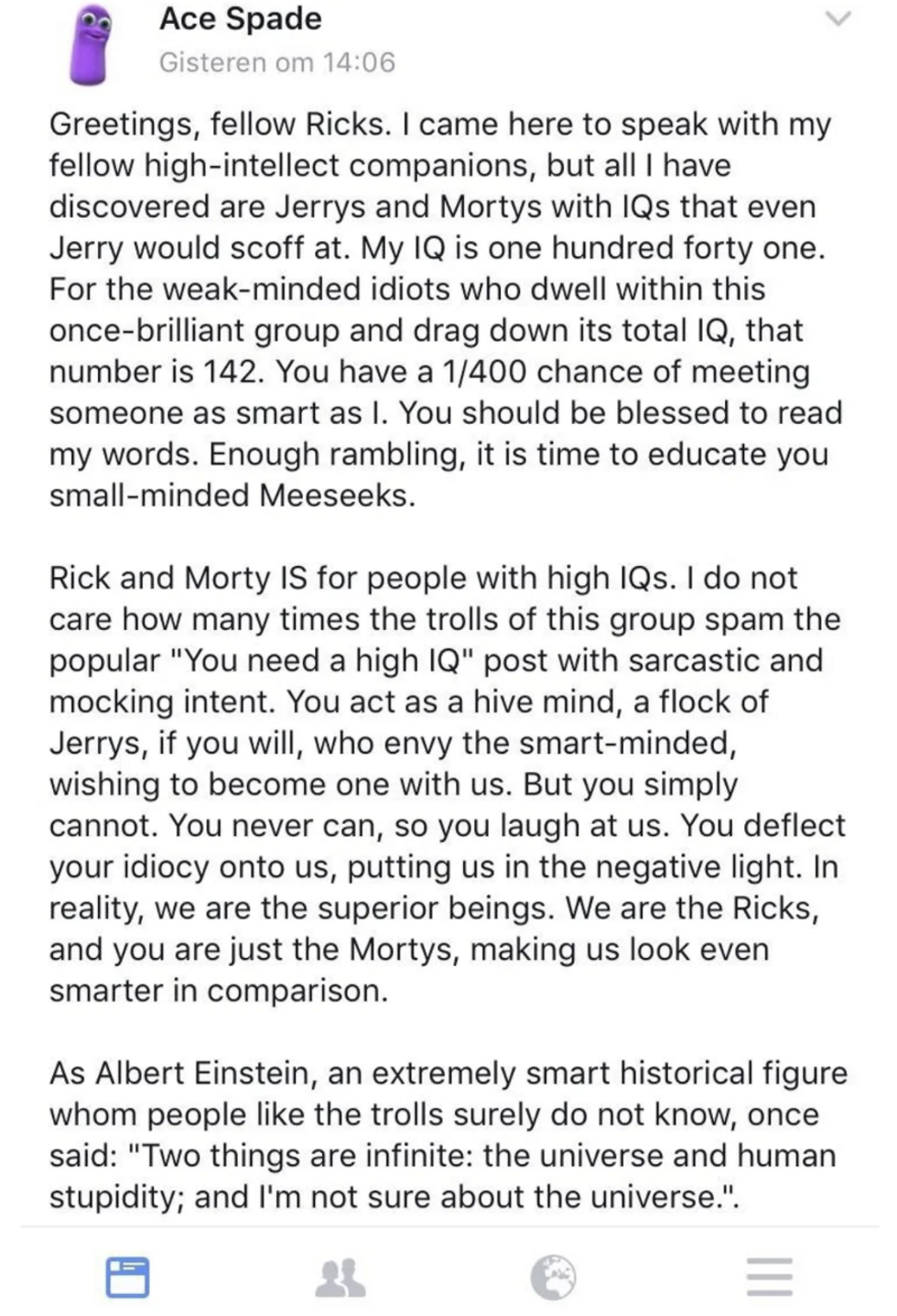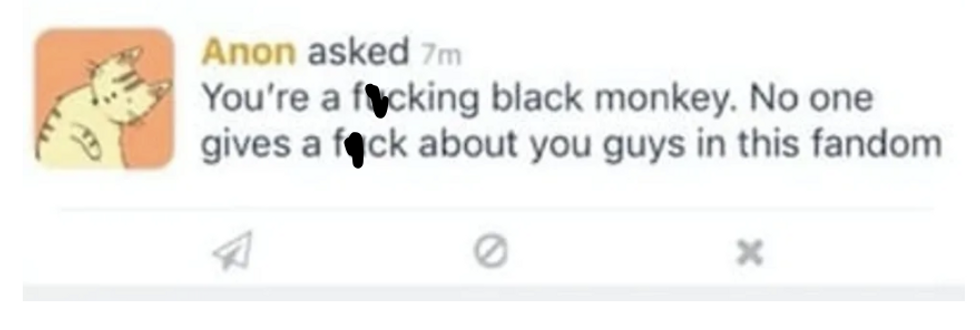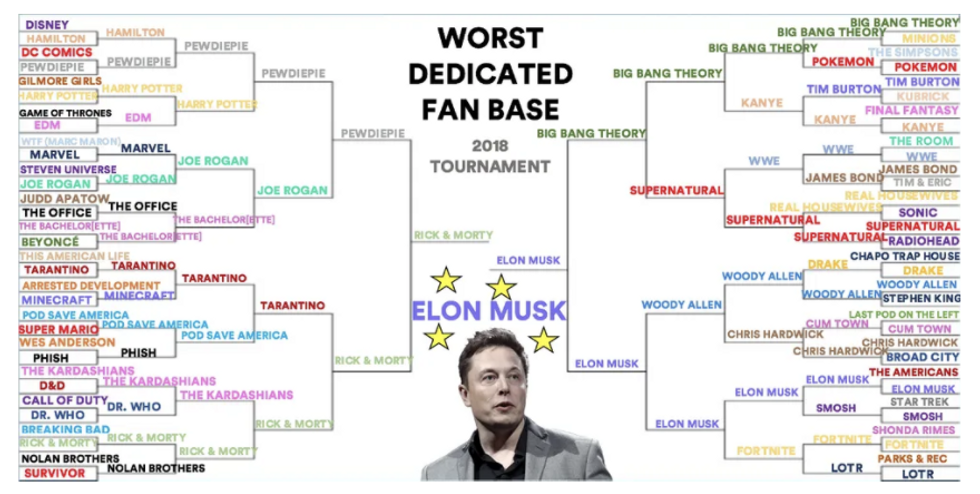
BTS at the American Music Awards
Photo by Featureflash Photo Agency (Shutterstock)
As harmless hobbies, most fandoms are predicated on the universal ideal that most media is entertainment, liking things feels good, and you don’t get to be an asshole if all don’t appreciate your favorite thing.
But at the heart of every Internet dumpster fire, there’s an ardent fanbase trolling forums and picking fights about their terrible opinions. While it’s one thing to be overly invested in the love lives of the Kardashians or easily excitable over Lady Gaga’s burgeoning film career, some people’s dedication to their fandoms can shape their identities.
An obnoxious fandom may simply take every opportunity to flood the Internet with memes, but toxic fandoms can turn into bullying communities, with some circulating intolerant, even harmful, rhetoric. From misogyny and racism to calls for violence and public doxxing, these out-of-control fan bases are some of the worst active today. Thanks to the return of Rick & Morty season 4 last night, we’re reminded of these insufferable fanbases now more than ever.
1. “The Real Ricks” – Rick & Morty

In 2013, Justin Roiland and Dan Harmon’s adult animation about an anti-hero mad scientist and his meek grandson began as an innocuous half-hour comedy. Soon, its niche appeal to speculative fiction geeks with irreverent senses of humor garnered a cult following. But a small fraction of the fanbase latched onto Rick’s nihilistic and hyper-intelligent misanthropy and basically took it way too seriously. On Facebook, a private group of like-minded “Real Ricks” identified with the character so much that they focused the fandom on defending Rick’s narcissism and lack of compassion. Their serious devotion is mocked by the highly circulated “copypasta” post: “To be fair, you have to have a very high IQ to understand Rick and Morty. The humor is extremely subtle, and without a solid grasp of theoretical physics most of the jokes will go over a typical viewer’s head.”
“Real Ricks” radicalize Rick’s tongue-in-cheek quips (“I don’t do adventures with chicks”) into actual misogyny (including harassing the show’s female writers). They elevate Rick’s worldview as a guiding pseudo-philosophy that recognizes and even pities “superior” men for their lonely existences as the smartest and most capable humans alive. Although it’s a small fraction of the fanbase, it’s among the loudest online, which is enough to sour the show’s actual merits of unique comedic timing and sharp commentary.
Despite the Internet “canceling” Dan Harmon every few years, it seems that Rick & Morty and its fans will never die.
2. “BTS Army” – BTS

Twitter User: JooniesBoop
Aside from the fact that BTS is not a unique pop group and have no appeal if you’re not a fan of K-pop, the fan base’s zealotry is annoying, at best, and alarming, at worst. People’s most common interactions with the “BTS Army” involve their obsessive gate-keeping of how the Internet talks about its members. The value of its boys (if we dare to speak their names), Namjoon, Hoseok, Jimin, Yoongi, Jungkook, Jin and Taehyung, knows no bounds. But that over-protective doting on the band results in vicious bullying of anyone who expresses a dissenting opinion, from name-calling to racially charged abuse.
Many black BTS fans have shared their experiences with racism from the BTS community. Some fans have received comments on their user pictures that black people aren’t “worthy” to be fans of BTS, while another shared, “I’ve been called ni**** and also told to go pick cotton and it’s always anonymous. But they always let me know that they’re Armys because they always end the message [with] ‘we don’t claim you in Army.'” While the Internet always hosts hateful posts, toxic fandoms can unite bullies under a common cause and attempt to justify the harassment of others with their love for their idols.
3. Elon Musk

Medium
The cult of personality surrounding Elon Musk is a mix of celebrity worship, self-righteousness, and buying into the man’s own savior complex. His core fanbase clings to the notion that Musk’s tech-savvy can save humanity. While the group’s moral superiority and defensiveness make them insufferable, their willful ignorance of his companies’ environmental downsides and disregard for worker safety makes them stubbornly blind. To justify (if not outright deny) Musk’s unsound, erratic behavior, many claim that journalists are actively sabotaging his vision of the future. Again, not every supporter of Elon Musk is a devout fan, bordering on worshipper, but those who elevate the problematic billionaire to icon status just muddy the waters of progressive change.
Musk’s acolytes were even named the “Worst Dedicated Fan Base” in a March-Madness-style tournament, cynically hosted by The Onion’s Michelle Spies. “Elon Musk is their masculine technologic messiah, sent to bring them into a new era,” she explained. “They will defend their billionaire Lord to the death.”
4. Jordan Peterson

As a clinical psychology professor-turned-YouTuber philosopher, Jordan Peterson appeals to mostly male, disaffected twenty-something-year-olds who cling to his paternalistic self-help advice in place of real guidance. His best-selling nonfiction book 12 Rules for Life: An Antidote to Chaos matches the interests of his 1.9 million YouTube subscribers.
Namely, Peterson offers rudimentary tips for self-improvement and a sympathetic attitude that claims progressivism and Leftist politics have made it harder for young men to reach their full potential. His insular fanbase clings to Peterson’s theories that “the masculine spirit is under assault” and feminists have “an unconscious wish for brutal male domination.” The mix of personal insecurities and finding scapegoats for one’s dissatisfaction with life leads a faction of fans to circulate misogynist and transphobic ideas couched in conservative politics.
5. “Bro Army” – PewDiePie
Felix Kjellberg (a.k.a PewDiePie) tops the YouTube playground with 106 million subscribers to his gaming vlog, but his controversial satire of Nazi salutes, racial slurs, and alt-right beliefs attracts a loyal fan base that has no clear understanding of irony. With a majority of his followers skewing younger than 24-years-old (11% being younger than 17), PewDiePie’s fanbase is active in the meme-culture of recycled imagery that blurs whether the intention is satirical or genuine. When the shooter of two mosques in Christchurch, New Zealand quoted a popular meme about the YouTuber before opening fire, Kjellberg publicly clarified that he was “absolutely sickened having [his] name uttered by this person” and in no way condoned the action. Still, PewDiePie’s blunt, unsophisticated riffing on anti-Semitic and alt-right sentiments risks “normalizing hatred” rather than mocking it.
In August 2020, PewDiePie’s playlist was leaked, and his fans began leaving transphobic and homophobic comments en masse on some of the artists’ pages. Some music artists have even openly asked, “Pewdiepie please don’t listen to my music” because his fans are so toxic.
- TV’s Most Accurate Depictions of Mental Illness – Popdust ›
- adult swim ›
- Season 4 Premiere Points to 100 Years of “Rick and Morty” – Popdust ›
- “Never Ricking Morty” Just Invented a “Fifth Wall” to Break – Popdust ›
- Taylor Swift’s Fans Are Toxic – Popdust ›
- Hip-Hop’s Most Annoying Fanbases – Popdust ›













